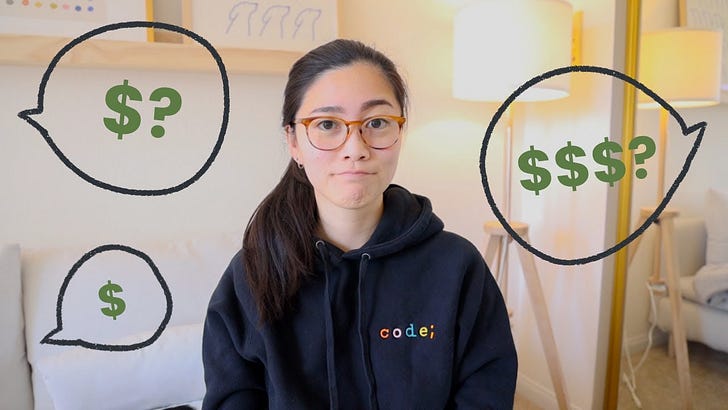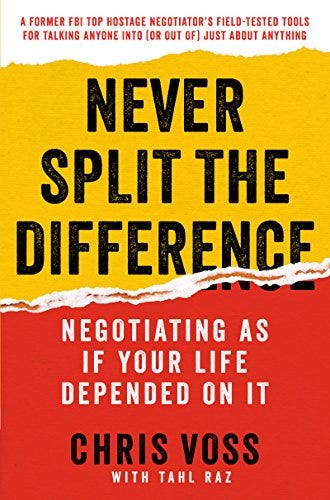Great news! - I received positive feedback from the team about your most recent interviews, and we’d like to make you an offer!
That’s it, you’ve made it. The long journey has come to an end. Yes but no. This is not over until the contract is signed.
Now we have to play a different kind of game.
You might think that negotiating is not your thing. You rather take whatever the company offers to avoid having that uncomfortable conversation about money. You don’t want to look like a greedy person, you want a better job that pays more than the one you currently have. How much more? Whatever the company offers you is fine…
You do not get what you want. You get what you negotiate.
– Harvey Mackay.
What’s the point of risking a job offer you were planning to accept for an extra 5%? WRONG.
You are most certainly not putting your offer at risk
The amount you are leaving on the table is much more than 5%
Negotiating a good offer can be an instant 20% raise
It only takes a few short meetings and some nerves of steel.
Your mind will freak out about it. The fear of losing everything will cloud your judgment.
We are risk-averse creatures.
What gives you leverage?
If you want to negotiate a better offer you need to be honest with yourself about who has the better hand. The company invested lots of their time and resources interviewing you.
They want you, that’s why they extended this offer to you. Only a small percentage of applicants make it to the end of their lengthy and complex interviewing pipeline. If you decline their offer is a big hit for them, they will not let you walk away from them that easily.
Two things give you leverage when negotiating an offer:
Acing the interviews: They love you. You impressed everybody with both your technical and soft skills. All the interviewers said strong hire and they are willing to do whatever it takes (within the limits of what’s
reasonablypossible) to get you on board.Competing offers: They need to offer you more because they are afraid of losing you to another company willing to put more money on the table. They will do their best to match your best offer to make sure that money is not the deciding factor in the negotiation.
If you can combine both of these, then you have the recipe for negotiating a juicy compensation package. Congratulations again 🎉!
NANANANA BATNA
Multiple offers from great companies give you a strong BATNA.
What does BATNA mean? Best Alternative To a Negotiated Agreement.
It’s the alternatives you or the company have in case the deal doesn’t work. Each party involved in the negotiation has its BATNA.
Let’s look at this particular case in more detail. The company’s BATNA is to keep interviewing more people to fill the spot. If they have one position and ten prospects to fill it, then I’m sorry but you are not that special for them.
But in the software business, the opposite is more likely to be the case, especially for more senior positions.
If the company struggles to find strong candidates that meet their bar, then their BATNA (the deal is over because you rejected them) sucks. Whereas your BATNA is just going with one of the other amazing companies that extended you an offer.
The more alternatives you have, the stronger your BATNA becomes.
Hungry for More?
Prepare for the negotiation phase like you’ve prepared for the other interviews.
These three links are undoubtedly a must-read:
Optionally, if you are fascinated by this topic as I am, you should read Never Split the Difference by former FBI hostage negotiator Chris Voss.
Thanks for reading and if you have any questions don’t hesitate to drop me a message on any of my social media accounts, I will be more than happy to help anybody in advancing their careers.






